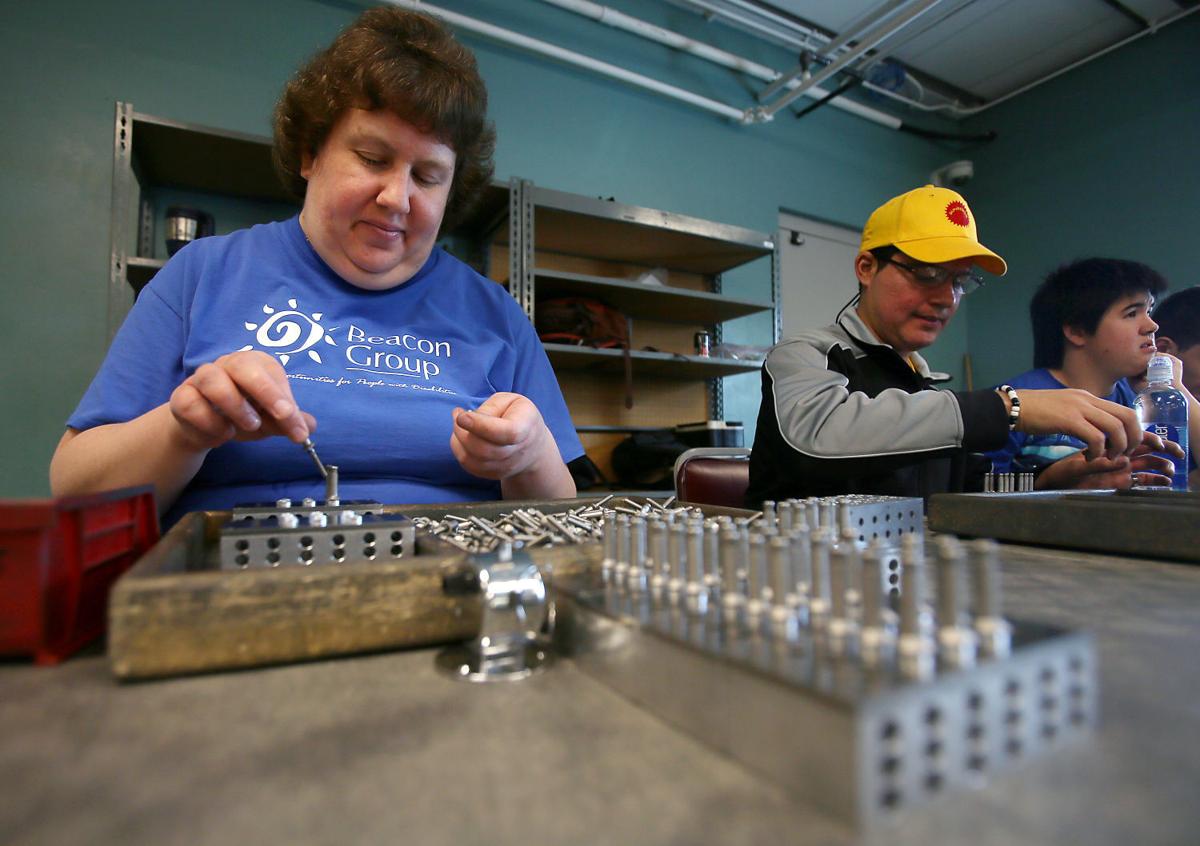Ted Knuck visited Washington, D.C., recently to testify about something that’s causing him great worry: his child’s right to choose where she works.
Knuck, a retired Pima County judge, shared daughter Genna’s story in mid-October on behalf of ACCSES, a public policy group that represents more than 1,200 disability service providers nationwide. That talk, before an advisory committee for the Workforce Innovation and Opportunity Act, is part of a national debate: Should the norm for people with disabilities be to work in integrated employment rather than in sheltered settings?
Over the last several years, states such as Vermont, Maine, Washington and New York have started phasing out or closing their sheltered workshops. These work environments, such as Tucson’s Beacon Group, are where people with disabilities work together in a controlled environment.
The advisory committee’s task is to prepare recommendations, over a two-year period that started in January, for the U.S. Labor Department on ways to increase employment opportunities for those with developmental disabilities.
Knuck says it’s not a realistic goal, or a fair one for those who have already tried integrated work and found it challenging and upsetting.
“In a perfect world, that would be wonderful, but that’s an impossible dream,” he said. “Those of us who are not disabled tend to impose our way of thinking on people who are disabled.”
His daughter, Genna, who is developmentally disabled, gets to work in a safe, supportive environment at Beacon, he said. She enjoys the simple routine and friendships she’s made there, he said, and, if a problem arises, the staff helps her and she gets time to recover.
Before she started at Beacon 12 years ago, Knuck said, Genna tried other jobs but quickly became frustrated and overwhelmed. What’s tricky, he said, is that his daughter’s challenges are not immediately evident and so people expect her to be capable of more than she can deliver.
He does not want to see her pushed to try integrated work again.
People who work at Beacon’s huge warehouse, at 308 W. Glenn St., carry out multiple subcontracts that might involve making airplane rivets, shredding documents or helping with shipping orders — many for wages below or far below the state minimum of $8.05 per hour. Others earn significantly more than that, said Patrick McCarthy, Beacon’s director of development. It depends on their capabilities.
The Olmstead ruling
Many states are taking action in integrated employment even though regulations haven’t been finalized yet, said Leann Fox, director of government affairs for ACCSES.
The shift is tied to a 1999 Supreme Court decision that people with developmental disabilities have the right to live in the community, not in institutions. That Georgia case, Olmstead vs L.C., led to what’s now called Olmstead Enforcement.
The National Disability Rights Network helped the U.S. Department of Justice’s Civil Rights Division enforce Olmstead in Rhode Island, where an investigation found the state over-relied on segregated employment. (For more information on Olmstead Enforcement, see ada.gov/olmstead/).
Rhode Island, the first state to reach an Olmstead settlement over employment, is now required to provide job opportunities to more than 3,200 residents with developmental disabilities over the next 10 years.
Jennifer Carusetta, chief legislative liaison for the Arizona Health Care Cost Containment System, that state’s Medicaid program, said there are no plans to cap enrollment for, or close, centers like Beacon.
“We want to ensure that individuals who are able and would like to transition into integrated employment have the tools and opportunity to do so,” she said.
The idea will require that individual be evaluated based on their ability to obtain integrated employment and then set individual goals accordingly.
“We recognize that integrated employment may not be attainable for all people,” she said. “We also recognize that there are people who, with the assistance and training provided in center-based employment, may be able to move in the direction of achieving this goal.”
Flexible Minimum wage
Beacon Group, which started here more than 62 years ago, provides supported employment in the community and job placements with more than 20 local employers.
About 715 people work at Beacon, or receive services there through its day program. In addition, about 150 former clients left for regular jobs last year, McCarthy said. About 68 percent of the employees have development disabilities. Each employee had two individual-support planning meetings last year, he said.
Beacon grossed about $16.7 million last year and netted about $400,000, McCarthy said. About $130,000 is restricted grant money that has not been spent on programs yet, he said, and the rest goes into reserves or to pay off debt.
Two pending federal bills would phase out special wages altogether over the next few years, Fox said. New Hampshire has already eliminated its flexible minimum wage, she said, and it’s still unfolding what this will mean to people who are not capable of earning more.
“There’s some hesitation to have a real conversation about those folks who aren’t going to be able to achieve this lovely idea of competitive, integrated employment and what it’s going to mean for their quality of life and the quality of life of their family members,” she said.
Fox said that in some states, the change has resulted in people who were previously employed now staying home all day or doing little in day treatment programs.
“Some of the people are depressed,” she said. “They are having feelings that most people would have when they lose a job.”





